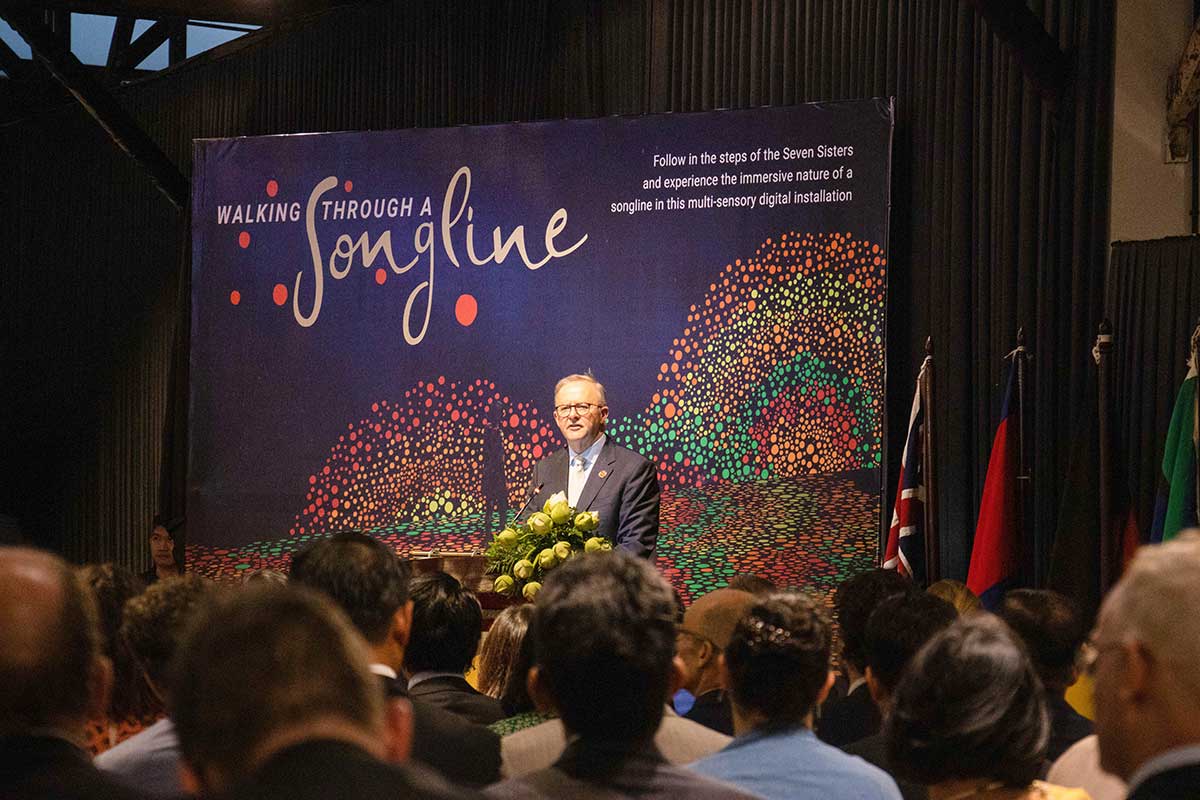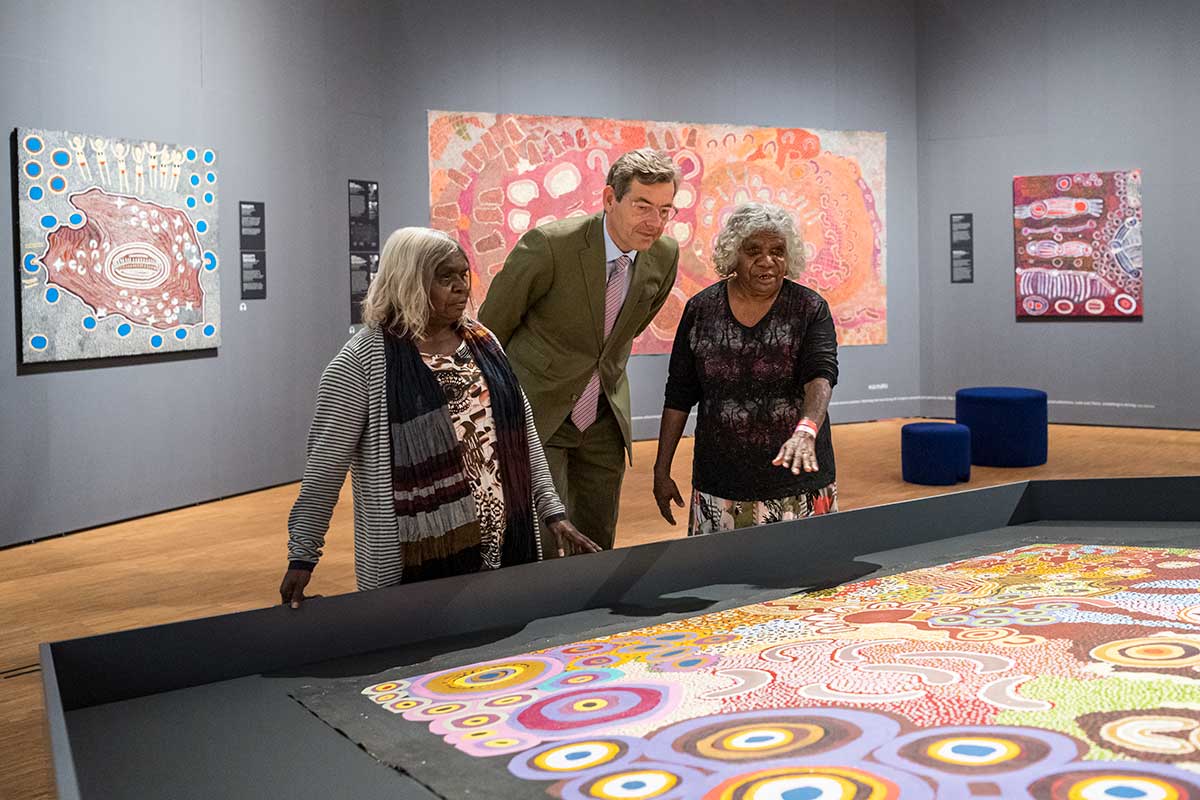- Songlines: Tracking the Seven Sisters and Walking through a Songline
- 33 venues
- 13 countries
- 1.2 million visits
The National Museum of Australia’s international program shares great Australian stories with global audiences, bringing the best of international collections to Australian audiences and developing strong partnerships with museums and galleries around the world.
The Museum’s award-winning Aboriginal and Torres Strait Islander exhibitions expose audiences to transformative experiences where deep truths are animated through exceptional contemporary art, offering a range of immersive and participatory experiences.
Touring now
First Nations art and culture
The Museum’s touring exhibitions have everything from bark painting to virtual reality; digital flat screens to the world’s only travelling state-of-the-art digital dome; epic installations woven with spinifex grasses to Emmy award-winning multimedia presentations and luminous canvases.
Exhibition formats are suitable for any venue. The Museum works flexibly and collaboratively with touring partners and host institutions to successfully meet the needs of individual venues and diverse audience markets.
Graphic panel displays
This popular program, delivered in partnership with the Department of Foreign Affairs and Trade, extends the reach of important Australian stories and places them in the global storytelling of human experience. Displays available for international tour include:
- Yiwarra Kuju: The Canning Stock Route
- Old Masters: Australia’s Great Bark Artists
- Evolution: Torres Strait Masks
- The Yuendumu Doors
Contact us
If you are interested in hosting one of the Museum’s international touring exhibitions, please email touring@nma.gov.au
Partnerships and cross-cultural exchange
Through meaningful and long-term relationships with international colleagues, the Museum continues to stimulate cultural exchange, develop a deeper dialogue between nations and increase engagement with audiences at home and abroad.
Staff exchanges, cross-country expertise and understanding, joint research, reciprocal programs, and face-to-face interpretation of touring exhibitions foster international connections.
The Museum's international program contributes to building a global community of museum professionals and allows the Museum to take an important role in the global conversation of First Nations peoples advocating internationally for the value of cultural collaborations.
You may also like

